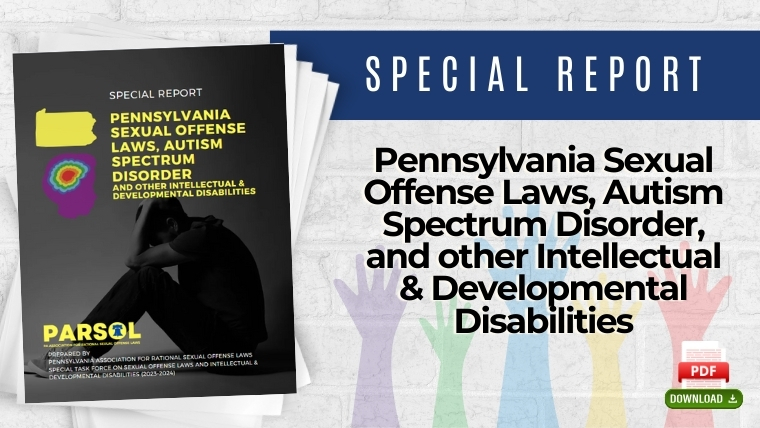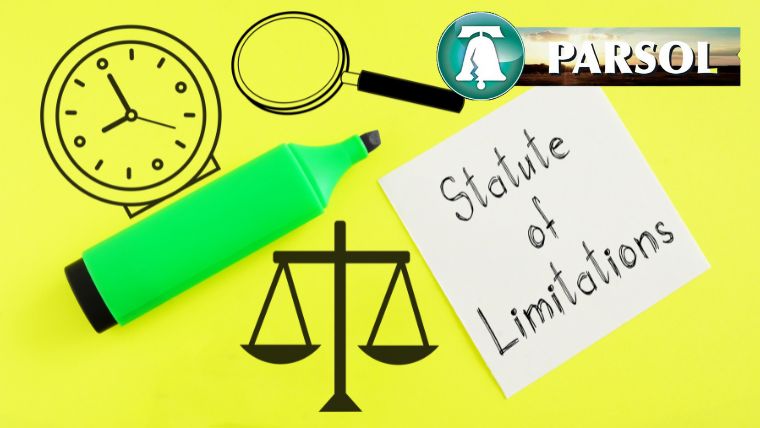2020 has turned out to be quite an eventful year to say the least. Lucky for you, I won’t be covering the pandemic nor the election. Instead, I’ll briefly cover the legal cases regarding SORNA and other relevant legal issues in Pennsylvania. So, hold on tight, here we go!
PA Supreme Court:
In the Interest of: N.B.-A., a Minor Decided on 1/22
SCOPA reversed the decision of the Superior Court that held E.A. (mother of N.B.-A.) was responsible for the child abuse against her child where another individual had been identified as the direct perpetrator.
- Majority Opinion by Justice Todd: http://www.pacourts.us/assets/opinions/Supreme/out/j-66-2019mo%20-%2010430355992715076.pdf#search=%22IN%20THE%20INTEREST%20N.B.-A.%20A%20MINOR%20%27Supreme%2bCourt%27%22
- Concurring Opinion by Justice Wecht: http://www.pacourts.us/assets/opinions/Supreme/out/j-66-2019co1%20-%2010430355992715444.pdf#search=%22IN%20THE%20INTEREST%20N.B.-A.%20A%20MINOR%20%27Supreme%2bCourt%27%22
- Concurring Opinion by Justice Dougherty: http://www.pacourts.us/assets/opinions/Supreme/out/j-66-2019co%20-%2010430355992715491.pdf#search=%22IN%20THE%20INTEREST%20N.B.-A.%20A%20MINOR%20%27Supreme%2bCourt%27%22
- Concurring and Dissenting Opinion by Justice Mundy: http://www.pacourts.us/assets/opinions/Supreme/out/j-66-2019cdo%20-%2010430355992715707.pdf#search=%22IN%20THE%20INTEREST%20N.B.-A.%20A%20MINOR%20%27Supreme%2bCourt%27%22
Com. v. Tighe, P. Decided on 2/19
The Supreme Court examined whether the trial court improperly limited appellant’s right to self-representation in violation of the Sixth Amendment to the United States Constitution and Article I, Section 9 of the Pennsylvania Constitution when, during appellant’s jury trial for sexual offenses committed against a minor female, the court prohibited appellant, who was proceeding pro se, from personally conducting cross-examination of the victim-witness, and instead required stand-by counsel to cross-examine the witness using questions prepared by appellant. The Court determined there was no constitutional violation.
- Majority Opinion by Justice Dougherty: http://www.pacourts.us/assets/opinions/Supreme/out/j-44-2019oajc%20-%2010434024995178111.pdf#search=%22Com.%20v.%20Tighe%20P%22
- Concurring Opinion by Chief Justice Saylor: http://www.pacourts.us/assets/opinions/Supreme/out/j-44-2019co%20-%2010434024995145858.pdf#search=%22Com.%20v.%20Tighe%20P%22
Com. v. Butler, J. Decided filed 3/26
The procedure used to designate certain individuals convicted of sexual offenses as sexually violent predators (SVPs) and the lifetime registration, notification, and counseling requirements of SORNA II Subchapter H was deemed constitutional.
- Majority Opinion by Justice Dougherty: http://www.pacourts.us/assets/opinions/Supreme/out/j-89-2019mo%20-%2010438216898869463.pdf#search=%22Com.%20v.%20Joseph%20Dean%20Butler%22
- Concurring Opinion by Justice Mundy: http://www.pacourts.us/assets/opinions/Supreme/out/j-89-2019co%20-%2010438216898869775.pdf#search=%22Com.%20v.%20Joseph%20Dean%20Butler%22
In the Interest of: H.R., a Minor Decided on 4/01
SCOPA determined that the Court-Ordered Involuntary Treatment of Certain Sexually Violent Persons statute (Act 21) and the mechanism for determining whether an individual is a sexually violent delinquent child (SVDC) in said statute did not constitute criminal punishment.
- Majority Opinion by Justice Dougherty: http://www.pacourts.us/assets/opinions/Supreme/out/J-102-2019mo%20-%2010438686099106588.pdf?cb=1
In the Interest of: J.M.G., a Minor Decided on 4/22
SCOPA was asked whether the harmless error doctrine is applicable to determinations made by the trial court under Act 21 when the materials provided to the Sexual Offender Assessment Board (SOAB) and considered by the Commonwealth’s expert in preparing his report and rendering his opinion, erroneously contained privileged communications under 42 Pa.C.S. § 5944 of the Judicial Code, establishing psychologist-patient privilege. They concluded that the harmless error doctrine does not apply.
- Majority Opinion by Justice Mundy: http://www.pacourts.us/assets/opinions/Supreme/out/J-76-2019mo%20-%2010440095299735716.pdf?cb=1
- Concurring Opinion by Justice Baer: http://www.pacourts.us/assets/opinions/Supreme/out/J-76-2019co%20-%2010440095299735726.pdf?cb=1
- Concurring Opinion by Justice Todd: http://www.pacourts.us/assets/opinions/Supreme/out/J-76-2019co1%20-%2010440095299735792.pdf?cb=1
Com. v. Torsilieri, G. Decided on 6/16
Mr. Torsilieri challenges the irrebuttable presumption that those who have been convicted of sexually offending “pose a high risk of committing additional sex offenses” violates PA’s Article I, Sec. 1 indefeasible Right to Reputation. The Court remanded the case back to the trial court for an in-depth evidentiary hearing. Please read our article Commonwealth of Pa. v. Torsilieri: SORNA Scientific Evidentiary Showdown for more details. Please read our article PA’s Unique Right to Reputation to learn about this indefeasible right.
- Majority Opinion by Justice Baer: http://www.pacourts.us/assets/opinions/Supreme/out/j-104-2019mo%20-%20104455242102835428.pdf#search=%22com%20v%20torsilieri%20%27Supreme%2bCourt%27%22
- Dissenting Opinion by Justice Donohue: http://www.pacourts.us/assets/opinions/Supreme/out/j-104-2019do%20-%20104455242102835477.pdf#search=%22com%20v%20torsilieri%20%27Supreme%2bCourt%27%22
- Dissenting Opinion by Justice Mundy: http://www.pacourts.us/assets/opinions/Supreme/out/j-104-2019do1%20-%20104455242102835438.pdf#search=%22com%20v%20torsilieri%20%27Supreme%2bCourt%27%22
Com. v. McClelland, D. Decided on 7/21
The Court ruled in McClelland’s favor by reaffirming from a prior case that hearsay evidence alone is insufficient to establish a prima facie case (the establishment of a legally required rebuttable presumption) at a preliminary hearing.
- Majority Opinion by Justice Dougherty: http://www.pacourts.us/assets/opinions/Supreme/out/j-78-2018mo%20-%20104488696105732189.pdf#search=%22com%20v%20mcclelland%22
- Concurring Opinion by Justice Wecht: http://www.pacourts.us/assets/opinions/Supreme/out/j-78-2018co%20-%20104488696105732817.pdf#search=%22com%20v%20mcclelland%22
Com. v. Lacombe, C. & Witmayer, M. Decided on 7/21
The Supreme Court ruled that Subchapter I of SORNA II is nonpunitive and does not violate the constitutional prohibition against ex post facto laws. Hence, the statute can be retroactively applied to Mr. Lacombe and Mr. Witmayer. However, the Court declined to find the PCRA, or any other procedural mechanism, is the exclusive method for challenging sexual offender registration statutes. Please read our article PA Supreme Court’s Backwards Ruling in Lacombe and Witmayer.
- Majority Opinion by Justice Dougherty: http://www.pacourts.us/assets/opinions/Supreme/out/j-103b-2019mo%20-%20104488531105725074.pdf#search=%22com%20v%20claude%20lacombe%22
- Concurring Opinion by Justice Mundy: http://www.pacourts.us/assets/opinions/Supreme/out/j-103b-2019co%20-%20104488531105725270.pdf#search=%22com%20v%20claude%20lacombe%22
- Concurring and Dissenting Opinion by Justice Wecht: http://www.pacourts.us/assets/opinions/Supreme/out/j-103b-2019cdo%20-%20104488531105725545.pdf#search=%22com%20v%20claude%20lacombe%22
Com. v. Baker-Myers, J. Argued on 9/17
The Commonwealth is asking the Court whether the Superior Court properly held the language “in violation of Chapter 31” is an essential element necessary for a conviction of Corruption of Minors as a felony of the third degree and whether the evidence was sufficient for a conviction of Corruption of Minors as a felony of the third degree despite the jury’s acquittal of Rape, Sexual Assault, Aggravated Indecent Assault and Indecent Assault. The case has yet to be decided as of this publishing date.
- Superior Court Majority Opinion decided on 05/21/19, written by Justice Dubow: http://www.pacourts.us/assets/opinions/Superior/out/Opinion%20%20AffirmedVacatedRemanded%20%2010400026558693275.pdf?cb=1
- Superior Court Dissenting Opinion decided on 05/21/19, written by Justice Stabile: http://www.pacourts.us/assets/opinions/Superior/out/Dissenting%20Opinion%20%20AffirmedVacatedRemanded%20%2010400026558693298.pdf?cb=1
Rice, R. v. Diocese of Altoona-Johnstown Argued on 10/20
The Diocese of Altoona-Johnstown is asking SCOPA whether the Superior Court commit reversible error by overruling precedent and holding that a plaintiff may bring a secondary cause of action for civil conspiracy where the primary cause of the harm is time barred. This question is in reference to the PA legislation that allows victims of child sexual abuse to file civil claims outside of the criminal statute of limitation. The case has yet to be decided as of this publishing date.
Com. v. Rogers, E. Argued on 10/21
Mr. Rogers is asking SCOPA to overrule or limit two cases that the Superior court relied upon when ruling that the Rape Shield Law can prevent Mr. Rogers from exercising his rights to cross -examination and to present a defense pursuant to the United States and Pennsylvania Constitutions in a case involving consensual prostitutional sex. The case has yet to be decided as of this publishing date.
Com. v. Cosby Jr., B. Argued on 12/01
Mr. Cosby brings up several issues. Some of which are: (a) the Montgomery County District Attorney (“MCDA”) agreed that Petitioner would not be prosecuted in order to force Petitioner’s testimony at a deposition in Complainant’s civil action; (b) the MCDA’s Office issued a formal public statement reflecting that agreement; and (c) Petitioner reasonably relied upon those oral and written statements by providing deposition testimony in the civil action, thus forfeiting his constitutional right against self -incrimination, did the Panel err in affirming the trial court’s decision to allow not only the prosecution of Petitioner but the admission of Petitioner’s civil deposition testimony? The case has yet to be decided as of this publishing date.
Com. v. Bres, S. Arguments Per Curiam Decided on 12/22
Mr. Bres is asking SCOPA whether his Habeas Corpus, petition of relief off Subchapter I of SORNA II, is a timely petition. The Court relied on Com. v. Lacombe saying SORNA “is not punitive and does not violate the constitutional prohibition against ex post facto laws”.
T.S. v. PSP Per Curiam Decided on 12/22
The Commonwealth Court ruled that the provisions of Subchapter I of SORNA II was punitive as applied to T.S. because his offenses were committed prior to the enactment of any PA sexual offense registration statute. The statute violated the ex post facto clauses of the U.S. and PA Constitutions. PSP appealed the case to SCOPA. The Court relied on Com. v. Lacombe saying SORNA “does not constitute criminal punishment and is not an ex post facto law”.
- PerCuriam: http://www.pacourts.us/assets/opinions/Supreme/out/34MAP2020pco%20-%20104639506122401350.pdf?cb=1
PA Superior Court:
Com. v. Zeno, M. Decided on 05/07
The Superior Court ruled that persons who committed a sexual offense as a juvenile but was convicted when they were adults cannot be required to register under SORNA. Please read our article PA cannot require registration of juvenile offenders rules PA Supreme Court for more information.
- Opinion by Justice McClaughlin: http://www.pacourts.us/assets/opinions/Superior/out/J-A07032-20o%20-%20104414705100284195.pdf?cb=1
Com. v. Kale, H. Decided on 05/13
In this case, the Pennsylvania State Police (PSP) argues that the General Assembly granted them “standing to appear and contest a filing in a court of this Commonwealth which seeks to challenge in any way the obligation of an individual required to register with the [PSP] under this subchapter.” 42 Pa.C.S.A. § 9799.74. The Superior Court concluded that nothing in SORNA compels service upon PSP, and PSP possessed no adjudicatory interest in the underlying matter.
- Memorandum by Justice Musmanno: http://www.pacourts.us/assets/opinions/Superior/out/J-S05043-20m%20-%20104422190100543301.pdf?cb=1
Com. v. Mickley, S. Decided on 09/24
As in Com. v. Torsilieri, Mr. Mickley challenges the irrebuttable presumption that who have been convicted of sexually offending “pose a high risk of committing additional sex offenses” violates PA’s Article I, Sec. 1 indefeasible Right to Reputation. The Court, in alignment with Torsilieri, remanded the case back to the trial court for an evidentiary hearing.
Com. v. Santana, D. Decided on 10/20
The Superior Court ruled that the Commonwealth could not constitutionally charge and convict Mr. Santana with failing to register in Pennsylvania, under SORNA, for a pre-SORNA crime that occurred in New York.
- Opinion by Justice Kunselman: http://www.pacourts.us/assets/opinions/Superior/out/J-E02005-19o%20-%20104579532116438419.pdf?cb=1
- Dissenting Opinion by Justice Stabile: http://www.pacourts.us/assets/opinions/Superior/out/J-E02005-19do%20-%20104579532116439036.pdf?cb=1
Com. v. Muhammad, T. Decided on 10/23
The Court held that SORNA is unconstitutional as applied to Ms. Muhammad, because it creates an irrebuttable presumption that her convictions for interference with custody of a minor, false imprisonment, and conspiracy to commit these offenses make her a risk to commit additional sexual offenses.
- Opinion by Justice Stabile: http://www.pacourts.us/assets/opinions/Superior/out/J-A16020-20o%20-%20104584404117816213.pdf?cb=1
Com. v. Ellis, S. Decided on 12/02
The Superior Court affirmed the PCRA Court’s ruling that Subchapter H of SORNA II is punitive because the Commonwealth failed to raise any challenge to the PCRA Court’s Subchapter H decision on appeal.
- Memorandum by Justice Bender: http://www.pacourts.us/assets/opinions/Superior/out/J-S44015-20m%20-%20104621414121116415.pdf?cb=1




